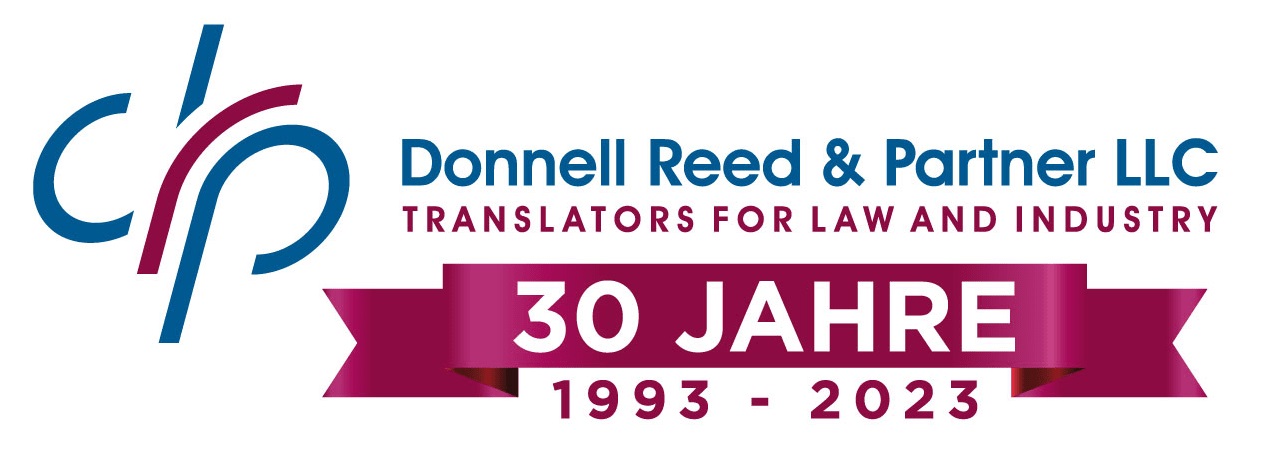Case Studies
Case 1: Outsourced Translation Department
Case 2: On-Site Translation Team
Case 3: The Advantages of Hiring a True Professional
Case 1
The Situation
An existing client, the Berlin office of a major international law firm, recommended DRP to three U.S. law firms that were gearing up as counsel to the plaintiffs to take on a German media giant in a multi-billion-dollar copyright dispute. The German firm had made 10,000 German-language documents available to the U.S. law firms for purposes of pretrial discovery. The law firms wanted to have the documents translated and reviewed within a 6-month time frame.
The Solution: A Three-Step Approach
DRP immediately brought a local IT service provider on board. The day after being informed about the task, DRP presented the law firms a three-step solution. DRP would organize a portal in which the German document universe and then the English translations would be deposited. DRP would make machine translations of the document universe available on the portal. The legal team would then be able to review the machine translations and escalate documents by making requests through the portal to the 50-person translator team to edit and rudimentarily correct the relevant-looking machine translations. If these human-assisted translations proved interesting, the legal team could then further escalate the processing, again by making requests to the translator team through the portal, for full-blown human translations.
When the legal team fell behind in the review, DRP organized an interim solution: DRP requested a list of key search terms, ran searches of the document universe, and then had its own sub-team of carefully selected reviewers assess the relevancy of the documents on the hits list. Relevant documents were escalated for human-assisted translation, and a much more manageable document sub-universe was then presented to the legal team.
The project was completed before the deadline. Only a very small subset of documents was ultimately deemed relevant for certified human translation.
Cost-Related Effect:
By taking this three-step approach and making it possible for the document universe to be narrowed down before deploying full-scale human translation, the clients of the three U.S. law firms were able to save hundreds of thousands of dollars in translation costs.
Case 2
The Situation
A premiere German law firm and long-time client of DRP recommended one of its clients, a U.S. call-center provider, to have DRP render the translation work needed during a due diligence review. The U.S. call-center provider was making a friendly takeover of a German call-center operator. The German firm had made all relevant German-language legal documents available at the offices of its external legal counsel in Frankfurt am Main. Because of the business and trade secrets recorded in the documents, the German firm did not want to let the documents outside the data room by any means, whether physically or electronically. Still, the documents had to be translated into English for review by the U.S. legal team.
The Solution: A Crack Translation Team to the Rescue
Having previously signed non-disclosure agreements, Messrs. Reed and Kushner flew into Frankfurt am Main to be physically present in the data room for three days. Messrs. Reed and Kushner each sat separately with different members of the U.S. legal team and went through the data-room documents, page by page, summarizing the content verbally. Passages or entire documents agreed to be relevant were marked for subsequent translation. While the U.S. legal team was then able to work on other matters related to the takeover (mainly number crunching), Messrs. Reed and Kushner completed the necessary translations on site, using the laptops they had brought with them.
The project was completed as planned. The U.S. legal team was confident it had conducted a diligent review.
Cost-Related Effect:
Even counting DRP’s second-class transportation and modest hotel accommodation costs, having two highly-skilled and highly-experienced legal translation experts in the data room to conduct reviews and perform translation work efficiently at a flat daily rate not only made the review at all possible but also saved the prospective buyer tens of thousands of dollars in translation costs.
Case 3
The Situation
When two global agrochemicals titans were at loggerheads about a theft of trade secrets, they wanted to hold a final pretrial discovery meeting, at which they would examine witnesses in a last ditch effort to reach a settlement. The corporate counsel of both firms were German speakers, but witnesses from the U.S. and Japan were to testify. The proceedings were to take place in English, and an interpreter had to be present to facilitate the English-language communication for the German-speaking legal teams. A translator was also to be present to translate and help draft the binding English-language settlement agreement. As one of the agrochemical companies was a client of Donnell Reed & Partner, they contacted DRP for a solution.
The Solution
To eliminate accommodation costs, Mr. Reed took an early-morning flight to the site of the meeting, provided consecutive interpretation when necessary during the informal hearing, translated the draft settlement agreement provided by the German lawyers, incorporated the desired changes, and then took an evening flight home.
Cost-Related Effect:
Being fluent in spoken and written legal German, having Mr. Reed present obviated the need to have one interpreter and one translator. Mr. Reed’s paralegal skills also obviated the need to have a separate English-speaking paralegal around to help draft the settlement agreement. Paying a single highly-skilled professional legal translator a reasonable flat daily rate to do the job saved DRP’s agrochemical client several thousand dollars in staffing and translation costs.
